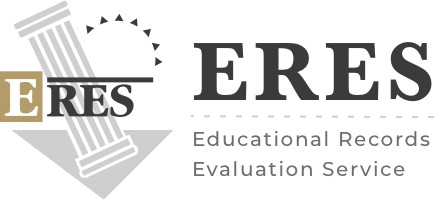Blog
All You Need to Know about the CPA Exam for International Students in the USA

Opportunities for progression, higher incomes, and better stability are some standard perks of earning a CPA licensure. To become a CPA in the US, foreign candidates must first demonstrate they meet the eligibility standards. Most State Boards of Accountancy require a foreign education evaluation for CPA. Only accredited NACES members may conduct the evaluations.
Once eligibility is confirmed, candidates can pick a state, get in touch with the Accountancy Board, complete the application and submit payment. They then register for the CPA Exam. Read on to learn more about the CPA Exam for international students.
Format of cpa exam for international students
The CPA Examination is divided into four four-hour portions. You will attempt each part separately. Each of the four sections comprises five smaller sections called "testlets" that include task-based simulations, multiple-choice questions, and written communication exercises in the case of the BEC section.
How Does The CPA Examination Assess My Knowledge And Abilities?
For all multiple-choice testlets, the CPA exam employs an adaptive test delivery strategy with numerous stages. The first testlet is moderately challenging. Depending on your performance, the following testlet will either be the same degree or somewhat more challenging. The adaptive model is not utilized for task-based exercises or tasks involving written communication.
How Long Do You Have To Take And Pass The CPA Exam?
You have 18 months to complete all four parts of the CPA Exam. However, keep in mind that the period of 18 months is calculated differently in each state. It is advisable to contact your state's Board of Accountancy to ensure you calculate the time correctly.
How Much Does It Cost to Appear in the CPA Exam?
Costs associated with appearing in the CPA exam and getting a license vary depending on the jurisdiction you apply to. Information is available from your local Board of Accountancy.
Do I Expect To Take The Same CPA Exam That Everyone Else Does?
You will attempt a distinctive but comparable exam. The questions provided are selected from a pool of test questions based on predetermined criteria. Despite taking distinct exams, the standards ensure that the outcomes are comparable.
Are Particular CPA Exam Administrations More Challenging Than Others?
By developing numerous versions of the CPA Exam with unique questions for different administrations, the AICPA increases test security. However, any variation between tests given by different proctors will be considered when scoring. All these variations are similar but not the same.
The questions are well-matched in terms of subject matter and item difficulty. When calculating a final score, each question's difficulty is considered. Consequently, receiving more straightforward questions does not automatically equate to a higher score.
How Many Points Do You Need To Pass?
The passing score on a scale of 0-99 is 75. The scores are not curved. The AICPA Board of Examiners (BOE) considers various criteria when establishing the passing score, such as the findings of studies used to establish standards, historical patterns, and changes to the Exam's subject matter. In addition to the NASBA, the academic community, professional CPAs, and consulting psychometricians all provide feedback to the BOE. The advisory score report recommends a passing or failing grade to boards of accountancy based on this threshold score.
Is Scoring Performed Automatically?
Except for the written communication tasks, all CPA Exam components are scored automatically. Most written answers are graded by a computer program calibrated by human graders. In certain instances, responses are graded by a network of human evaluators (all CPAs). Human graders will automatically re-grad grade your written communication activities if your score is near the passing standard. The final grade is determined by averaging the scores. The AICPA employs Item Response Theory, a popular psychometric scoring method, for the Exam's objective part.
What Is Score Evaluation?
The score review method verifies that the authorized answer keys were utilized and applied correctly to calculate a candidate's score; alternative responses are not accepted. It is merely a second, independent confirmation of your CPA Exam score. Remember that before being issued, all scores are subjected to rigorous quality control procedures. Given the number of quality control checks that have already been performed, it is highly improbable that your score will change due to a score review.
Take the First Step towards CPA Examination with ERES
CPA is a fantastic career option for international students in the United States. With dependable credential review services, ERES can help you advance your career. For CPA review, enclose your original documents in a stamped envelope. Originals are also acceptable as certified copies. We deal with a variety of CPA boards. So, make sure you review the list of boards we deal with or get in touch with us for additional information on ERES CPA evaluation.
Start Now
ERES
Educational Records Evaluation Service helps Non-US educated individuals to receive their US equivalences with our credential evaluation reports.
Services
Contact us
Tue - Fri: 10:00 to 16:00 ( PST )
4773 Mangels Blvd, Fairfield, CA 94534, USA.
© 2025 Educational Records Evaluation Service. All rights reserved.











